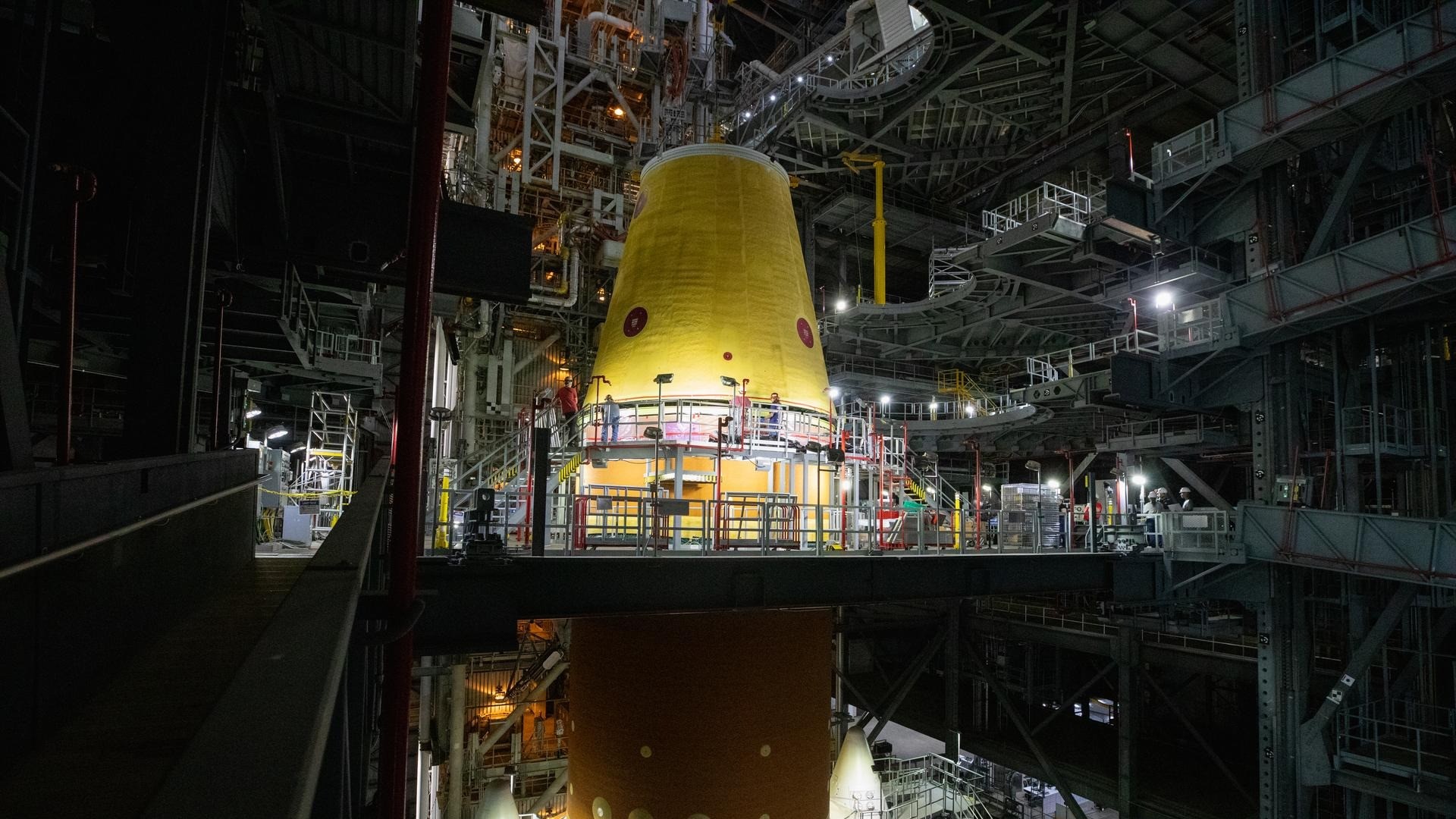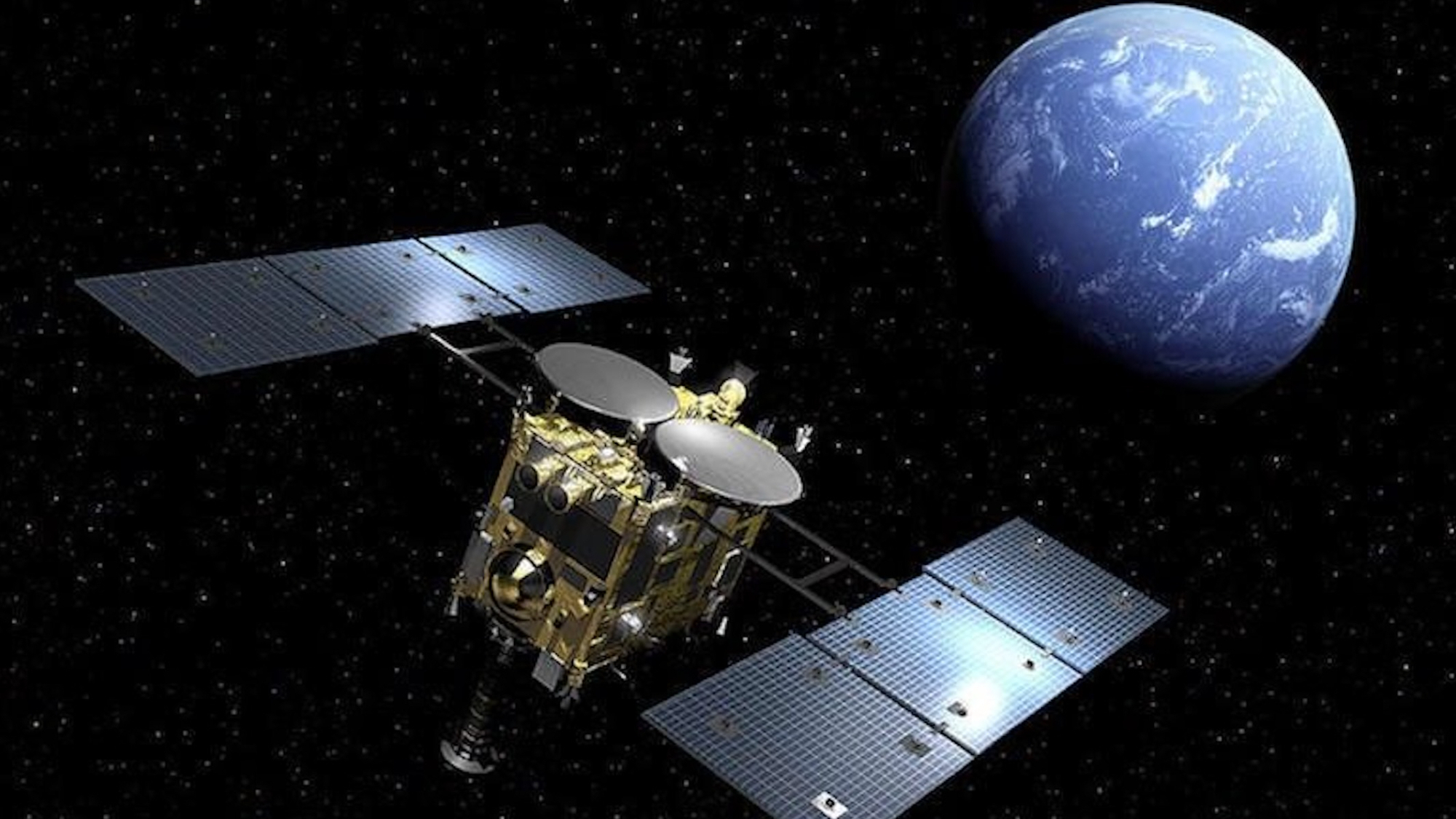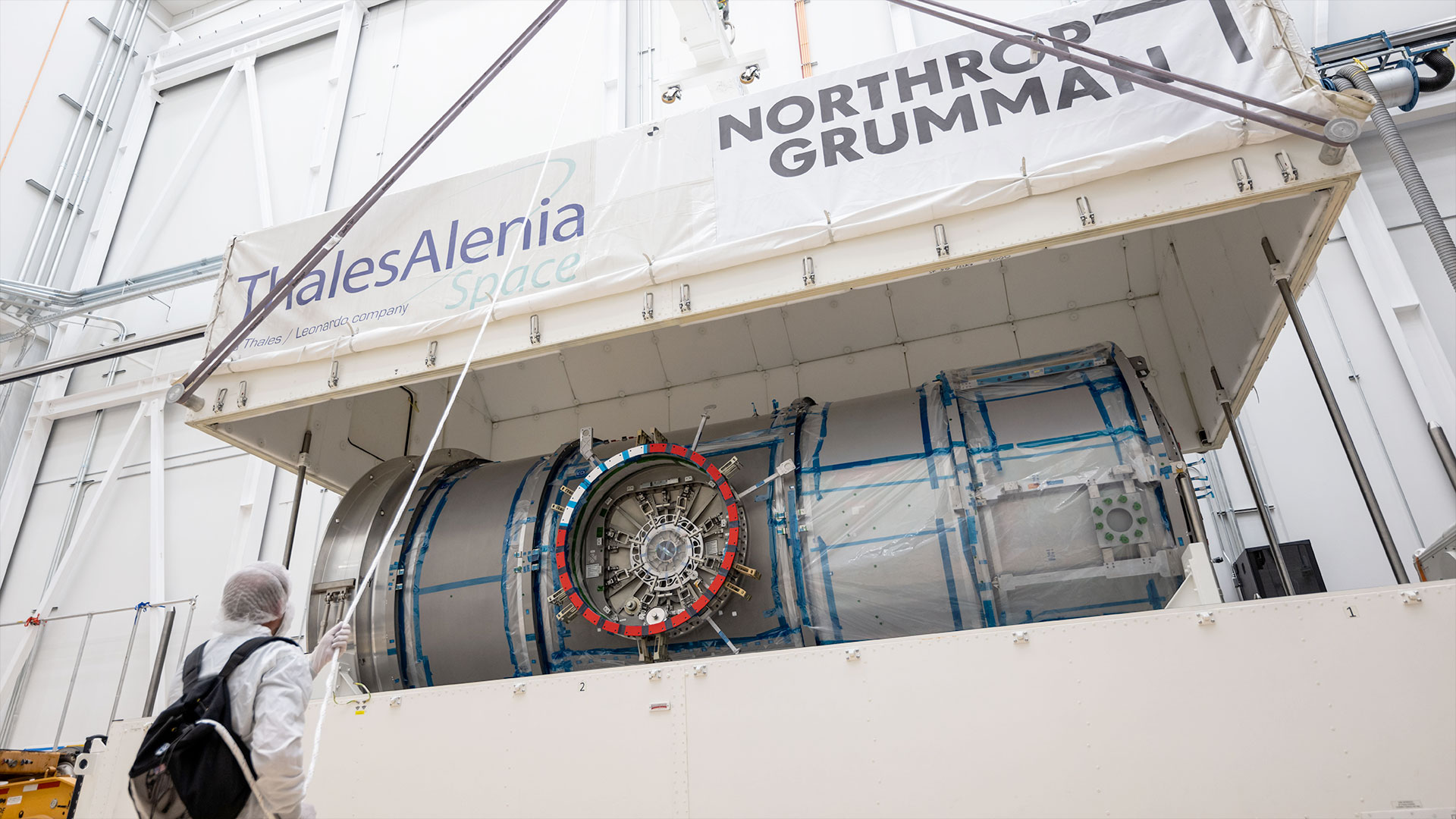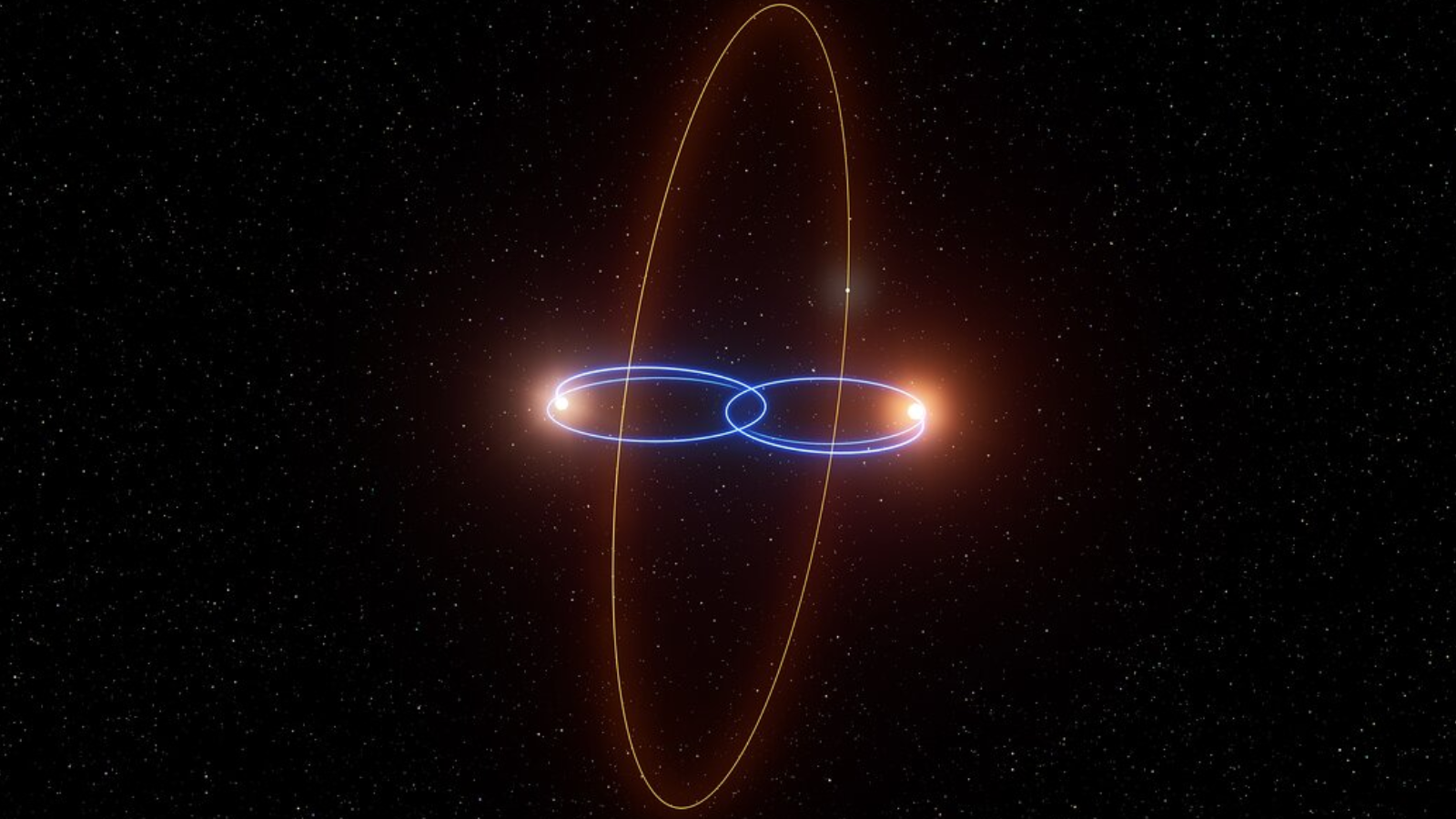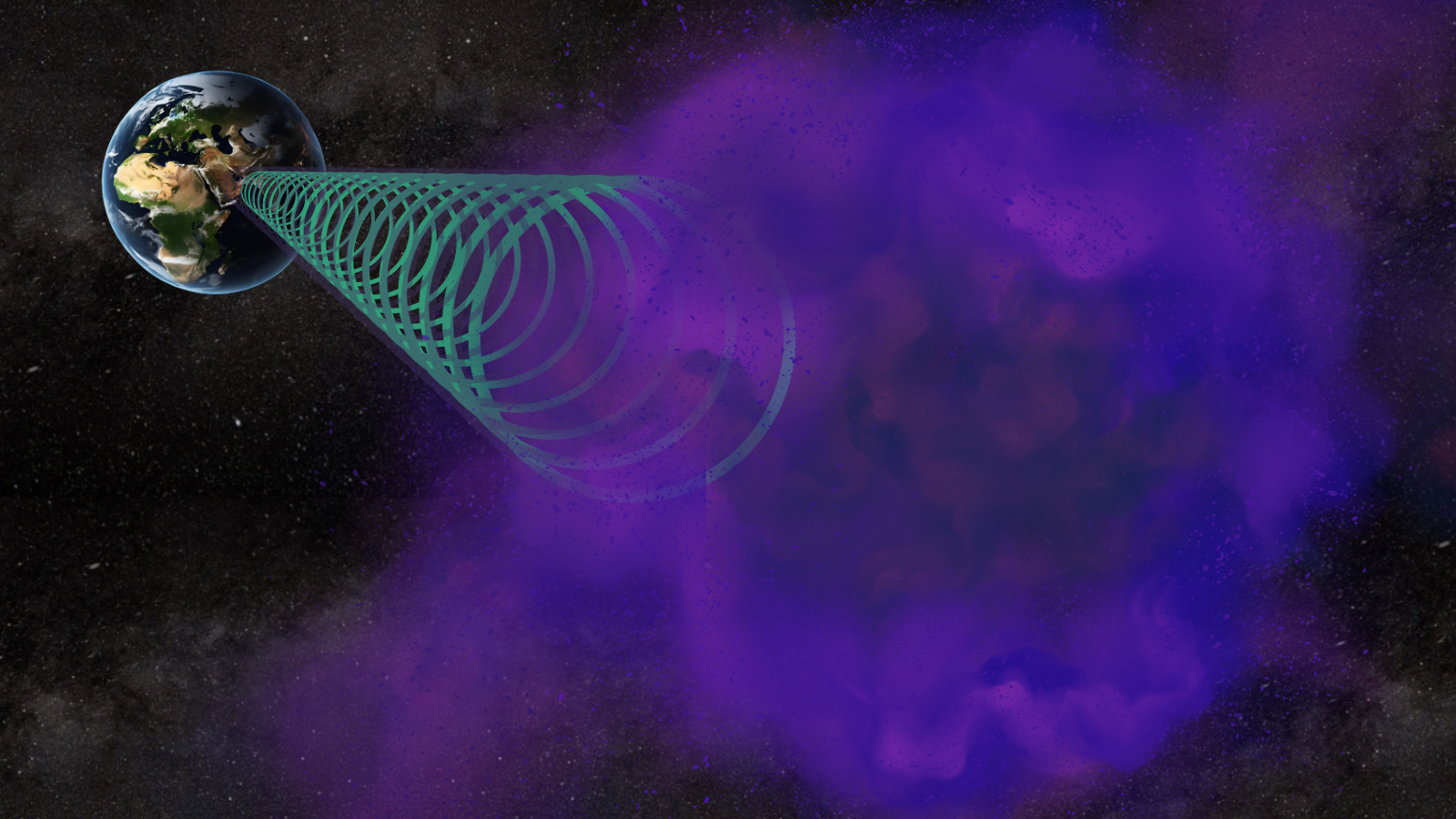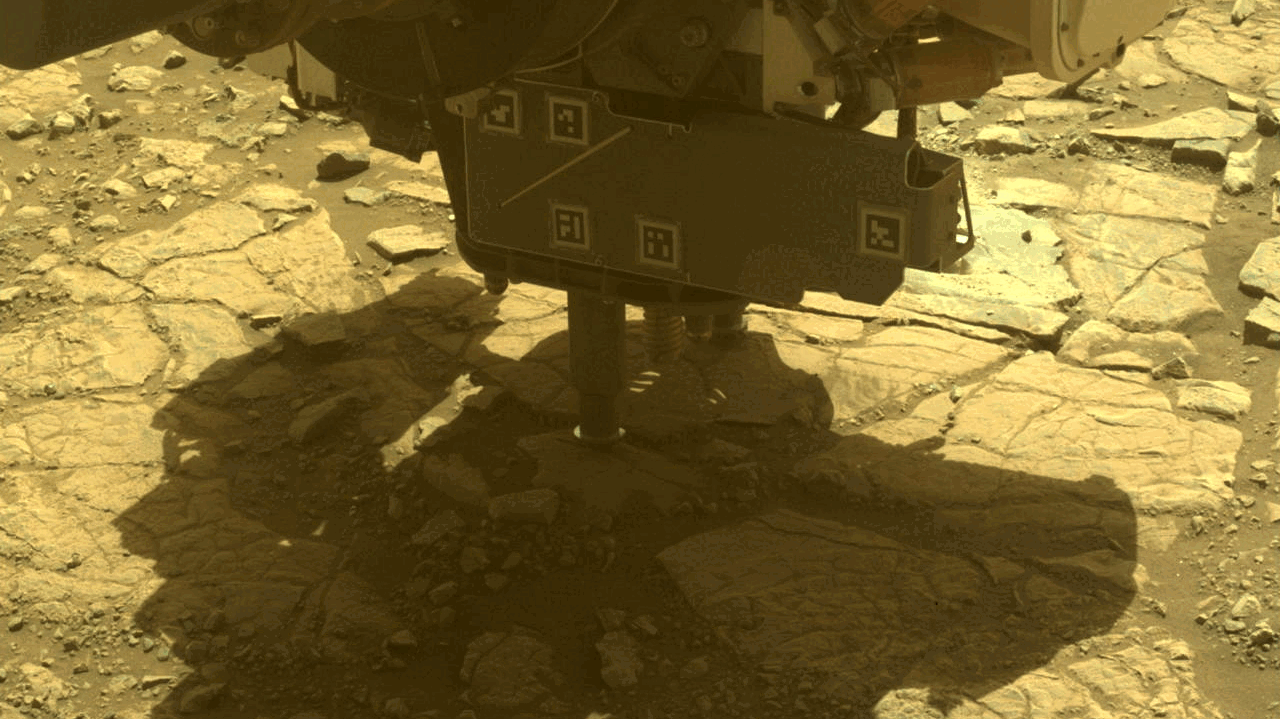Bounteous harvest in Antarctic greenhouse may bode well for Mars colonization
Antarctica is nearly as hostile as Mars.

A greenhouse in Antarctica testing technologies that could one day grow food for Mars colonists has produced an abundant harvest of greens, vegetables and spices completely without soil and natural light, showing promise for future space missions.
The greenhouse, called EDEN ISS, is operated by the German Aerospace Center (known by its German acronym, DLR) near the Neumayer III Station, a polar research outpost located on the Ekström Ice Shelf on the eastern coast of Antarctica.
NASA scientist Jess Bunchek, who joined this year's overwintering crew at the station, planted a range of vegetables and greens in the fully automated greenhouse a few months ago. The crops — which included broccoli, cauliflower, kohlrabi, chard, chilli peppers, tomatoes, cucumbers and a range of lettuces and spices — enlivened the otherwise dull diet of long-shelf-life foods that the crew members have to rely on.
Related stories: Could space greenhouses solve Earth's food crisis?
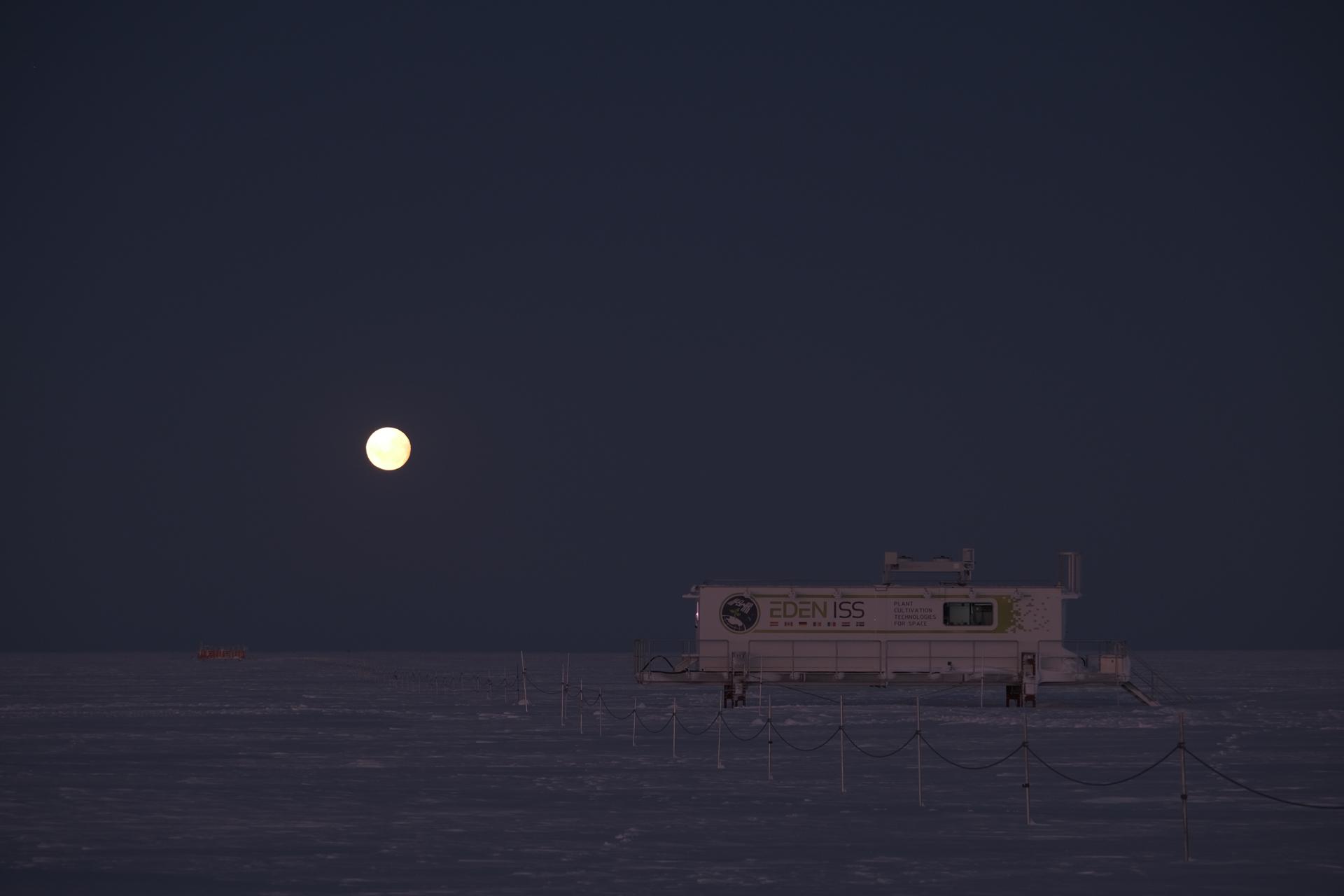
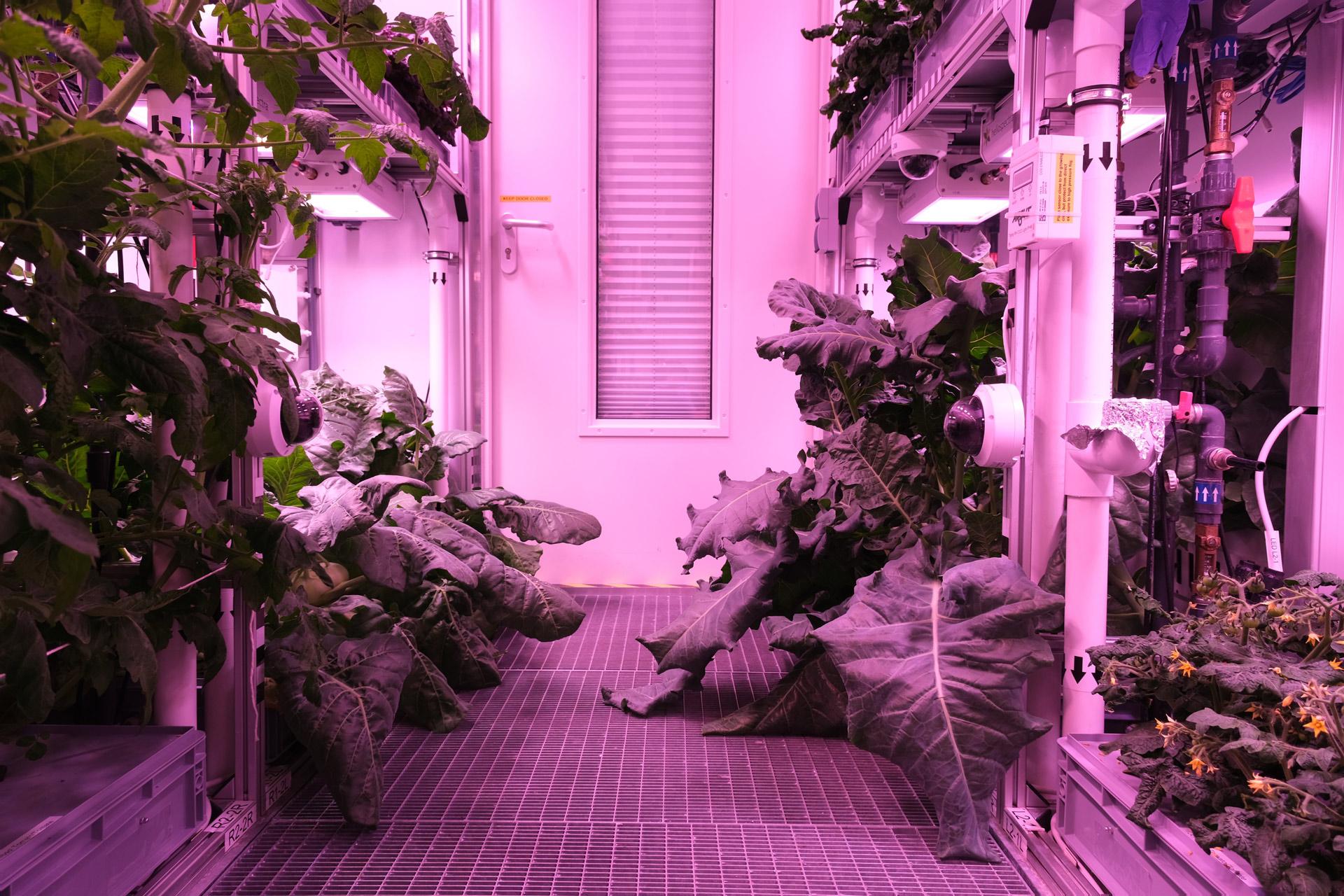
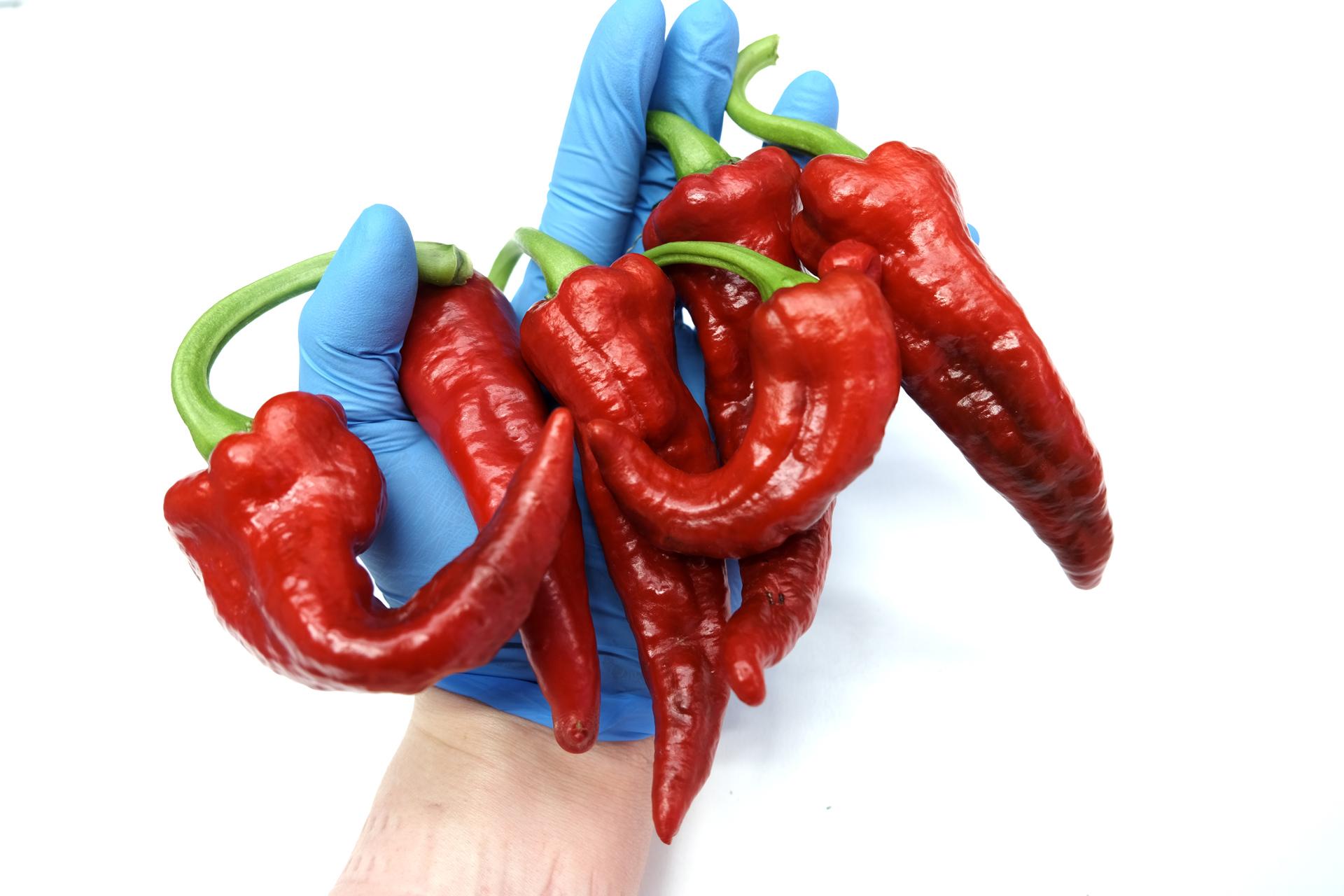
"We have never been able to grow so many different varieties of vegetables and herbs during an overwintering mission with EDEN ISS," Daniel Schubert, EDEN ISS project leader at DLR, said in a statement.
The greenhouse grows plants without soil, using a technique called aeroponics, which sprays a nutrient-rich solution onto the plants' roots, which are suspended in the air. The greenhouse is fully artificially lit, as it has to operate throughout the pitch-black nine weeks of the Antarctic winter.
Some of the plants grown by Bunchek have previously been grown on the International Space Station. The scientist plans to compare how the plants fared in the Earth-based "space" greenhouse compared to those grown in two mini-gardens on the orbital outpost, the Veggie and the Advanced Plant Habitat experiments.
Get the Space.com Newsletter
Breaking space news, the latest updates on rocket launches, skywatching events and more!
"I am relieved by how well the crops have grown thus far," Bunchek said in the statement. "EDEN ISS is unique and groundbreaking in that respect. We are collecting large amounts of data on system performance and resiliency, crop health and production, environment and crop microbiology, food safety, nutrition, crew psychology and the required inputs such as power, water and crew time."
Studying the mental health benefits of being around green plants and having access to fresh food is an important part of the experiment as well. Just like astronauts on the International Space Station, the Antarctic crew is completely isolated in a hostile environment where survival is impossible without advanced technologies. Injecting a little color and life into the crew's daily routine can help keep their spirits up.
"We will now be able to compare the crew psychology of the astronauts on the Space Station as they work with 'Veggie' and the Advanced Plant Habitat with the Antarctic overwintering crew members at Neumayer interacting with EDEN," said Bunchek. "With a small overwintering crew and a long isolation period, Neumayer is a great space analogue setting for this kind of study."
The greenhouse is located 1,300 feet (400 meters) from the Neumayer III Station. When polar storms hit the area, the greenhouse has to sustain its greens without Bunchek's help for several days, as taking the daily supervision walk would be too dangerous for the scientist. On such days, a team at the DLR control center in Bremen, Germany, monitors the greenhouse remotely, using its central computer to adjust the nutrients, temperature and humidity to the plants' needs.
"Similar to agriculture, we have to accept the fact that weather and climate are the determining factors," said Bunchek. "But I am here to learn how we can use technology to thrive in extreme conditions, whether it is a crew in space or communities dealing with climate change."
Bunchek has spent nearly a year at the Neumayer III Station and will return home in early 2022.
Follow Tereza Pultarova on Twitter @TerezaPultarova. Follow us on Twitter @Spacedotcom and on Facebook.
Join our Space Forums to keep talking space on the latest missions, night sky and more! And if you have a news tip, correction or comment, let us know at: community@space.com.
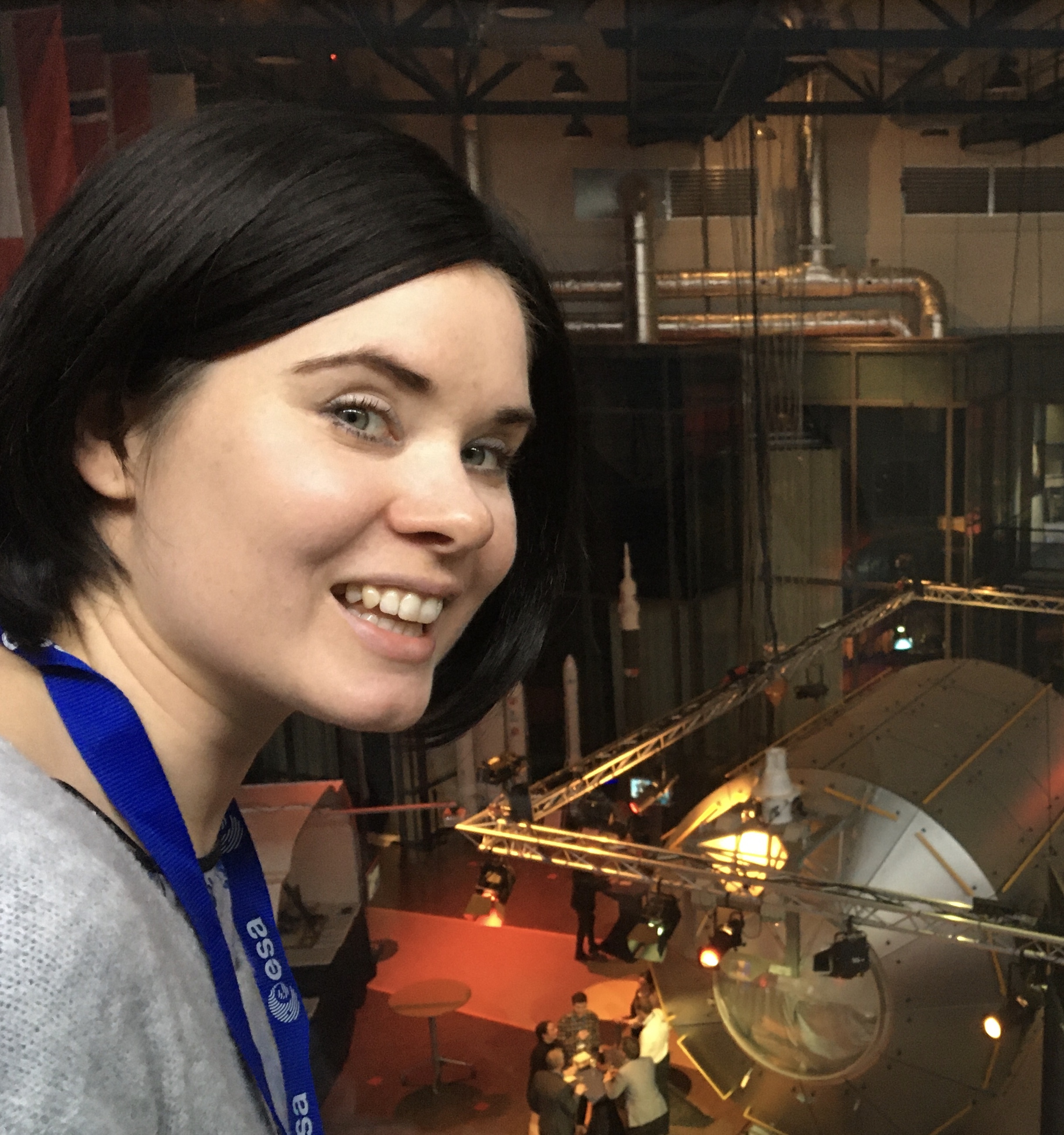
Tereza is a London-based science and technology journalist, aspiring fiction writer and amateur gymnast. Originally from Prague, the Czech Republic, she spent the first seven years of her career working as a reporter, script-writer and presenter for various TV programmes of the Czech Public Service Television. She later took a career break to pursue further education and added a Master's in Science from the International Space University, France, to her Bachelor's in Journalism and Master's in Cultural Anthropology from Prague's Charles University. She worked as a reporter at the Engineering and Technology magazine, freelanced for a range of publications including Live Science, Space.com, Professional Engineering, Via Satellite and Space News and served as a maternity cover science editor at the European Space Agency.



